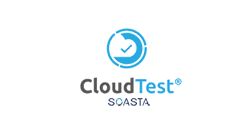In today’s digital age, cloud-based software testing has become an essential aspect of ensuring the reliability, scalability, and security of applications hosted in the cloud. With the increasing popularity of cloud testing, numerous tools and techniques have emerged to help organizations validate performance, security, and functionality in diverse cloud environments.
Cloud-based software testing emerges as a pivotal practice for ensuring robust, secure, and high-performing applications. This domain, central to the development lifecycle, not only enhances efficiency but also significantly reduces costs, making it a go-to strategy for businesses aiming for agility and excellence in their digital offerings. With an array of tools available, it’s crucial to discern which ones stand out for their efficacy in delivering comprehensive software quality assurance services.
Well-Known Cloud-Based Software Testing Tools
- Selenium: Selenium is a pack of open-source browser automation tools whose target audience are programmers looking to automate SAAS applications (web browser). Selenium works with various programming languages, including Java, Python, C#, Ruby, or JavaScript, which makes it a versatile choice for developers. With Selenium Grid like products and Sauce Labs as some examples among other cloud based software testing offerings by Selenium, testers can execute parallel tests on various devices using different operating systems and browsers, thereby both hastening the process as well as improving test coverage.


2. TestComplete: TestComplete is a powerful automation tool designed by SmartBear Software. It provides support for various desktop, web, and mobile apps such as Angular, React, and Vue.js — modern web technologies. Through cloud-based options such as TestComplete Cloud, TestComplete provides ways for teams to cooperate naturally, exploit remote testing resourcefulness, and scale up when they need to. TestComplete can be leveraged by performance testing companies for comprehensive software performance testing services capability.
3. Sauce Labs: Sauce Labs is a performance testing company that grants access to vast numbers of browsers, operating systems, and real devices for web and mobile app testing purposes. By its parallel testing capabilities along with complete test infrastructure, Sauce Labs enables teams to boost their test cycles, reduce risk coverage rate while maintaining consistent user experience across multiple platforms. Sauce Labs is a popular choice for security testing services as well.


4. BrowserStack: BrowserStack is also a popular cloud based software testing platform that allows one to have access to thousands of real browsers/devices for web/mobile app tests. It can be seamlessly integrated with several automation frameworks that include Selenium, Appium, and Cypress, making it possible for developers to run their tests efficiently and accurately across different environments. BrowserStack is frequently used by software quality assurance services providers.
5. SOASTA CloudTest: A cross-platform test management tool that enables four types of test automation on a single web platform, including mobile functional and performance testing and web-based testing


6. LoadStorm: A load-testing tool for web and mobile applications, ideal for checking performance under excessive traffic or usage, and highly scalable to simulate as many virtual users as required
Pros and Cons of Using Cloud-based Software Tools in Software Testing
- Scalability: Unmatched scalability is provided by cloud based software testing tools, hence enabling infrastructure for testing teams to be downsized or upsized very easily in response to project needs. This adaptability ensures optimized use of testing resources and minimizes inefficiencies.
- Affordability: Organizations can save a lot of money when they use cloud computing resources for their physical testing infrastructure maintenance and upgrades. Pay-as-you-go or subscription-based charging models are commonly used by cloud based software testing tools, and this usually lowers their cost compared to traditional on-premises solutions.
- Remote Collaboration and Testing: There is a constant association between distributed teams facilitated by cloud based software testing tools, as it helps bring together developers, testers, and stakeholders from different parts of the world accessing tests services and outputs regardless of geographical boundaries. It becomes even more useful if an organization has remote team members or global operations.
- Broad Test Coverage: With extensive browser support, operating systems, devices, etc., cloud based software testing platforms ensure that there is holistic test coverage, which will guarantee that applications work well across various environments as well as user scenarios. This comprehensive test coverage is crucial for software quality assurance services.
- Parallel Testing: Many performance testing company tools leverage cloud-based testing that support parallel testing, enabling teams to execute multiple tests at once, thereby reducing the overall time spent on testing and expediting software development.
Real-Life Examples and Use Cases
Cloud-based software testing tools have been effective in helping organizations across different sectors achieve high quality when designing their products. For instance, finance is one industry where security testing services are highly critical; therefore, financial companies use these tools to ensure they thoroughly test applications for vulnerabilities and adherence to regulatory standards.
In the e-commerce sector, where user experience matters most, firms have relied on cloud based software testing tools that will verify that their online platforms work fluently across a range of devices as well as browsers so that customers can get a reliable shopping experience. These software quality assurance services are essential for e-commerce businesses.
Emerging Trends and Advancements
It must be noted that in cloud based software testing tools, there has been a shift toward meeting new trends as technology advances. In particular, one key trend is integrating artificial intelligence (AI) and machine learning (ML) capabilities into testing tools themselves. Through these technologies, test case generation can be automated, test execution optimized while providing intelligent insights for more efficient and effective software performance testing services.
This has also led to the rise of microservices and containerization with their attendant specialized testing tools and frameworks uniquely tailored for testing distributed and containerized applications in cloud environments. These advancements are being adopted by many a leading performance testing company and providers of security testing services.
The Takeaway
Nowadays, cloud based software testing tools have become valuable assets for modern software development teams that help them deliver high-quality applications as well as streamline their testing processes, reduce costs, and ensure complete test coverage across multiple platforms/environments.
For those who want to lead the way forward when it comes to software quality assurance, Motivity Labs offers innovative and extensive software performance testing services. By understanding cloud based software testing technologies thoroughly, industry’s best practices as well as emerging trends, Motivity Labs enables businesses to achieve better software quality, hasten time-to-market, and enhance customer satisfaction.



